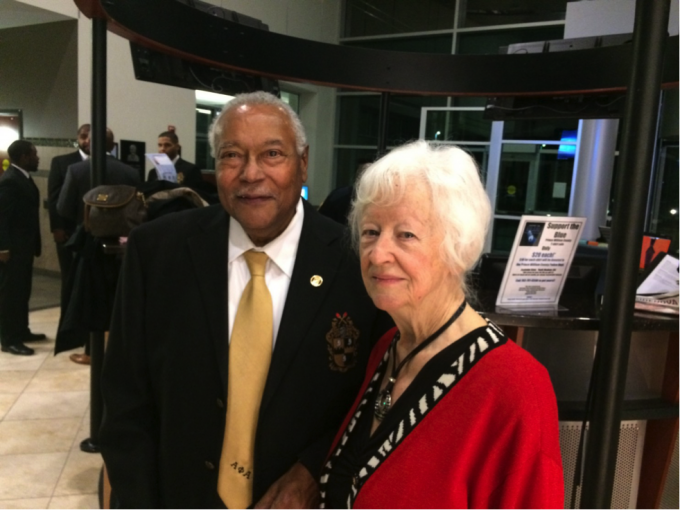February 23, 2017
New Prince William school named to honor former school board members
Jonathan Hunley
The Washington Post

The Prince William County School Board voted 7-1 last week to name a new elementary school in the Potomac Shores community after former board members John Harper Jr. and Betty Covington. (Jonathan Hunley for The Washington Post)
An eastern Prince William elementary school opening this fall will be named for two former school board members who broke social barriers in their public-service careers. The Prince William County School Board voted 7 to 1 last week to name the new school in the Potomac Shores community Covington-Harper Elementary, in honor of Betty Covington and John Harper Jr.
Covington spent more than five decades in education in Prince William, including being a principal in an era when few women worked in leadership roles. Harper was the first African American to serve as the Neabsco District representative on the board after being elected in 1995.
Wednesday’s vote was the second naming decision the school board has made in as many years, but it was hailed as the product of a more peaceful process.
Last year, tension ran high over whether to name a new elementary school in memory of Kyle R. Wilson, the only Prince William firefighter to die in the line of duty, or to honor philanthropist George M. Hampton. Board members eventually decided to name the school after Wilson and to rename Godwin Middle School after Hampton. The idea was that the name of Hampton, an African American, would replace that of the late Mills E. Godwin Jr., a two-term Virginia governor with a segregationist past.
That compromise still frustrates some, including those who say the Godwin Middle community wasn’t properly informed of the change. So when it became apparent that Covington and Harper were both top choices for the name of the Potomac Shores school, another decision seemed as though it might get mired in controversy.
School board member Diane L. Raulston (Neabsco) even joked Wednesday that she was so apprehensive about making another name choice that she started looking for a hole where she could bury herself and hide while the discussion occurred.
“But then I realized who the two people were,” Raulston said. “And I thought, ‘They are probably two of the nicest individuals that you can think of if you’re going to be in this kind of situation.’ ”
She thanked Covington and Harper for accepting the hyphenated compromise and for putting aside a desire to monopolize the limelight.
However, her colleague William J. Deutsch (Coles) said the school board needs to get away from naming schools after living people. He said the practice invites divisiveness.
Deutsch, who cast the sole dissenting vote against Covington-Harper, said that in making naming decisions, school board members should place the most weight on what the new school’s surrounding community wants. If they had done so in the case of Potomac Shores, he said, the school would have been named only for Covington, who worked nearby for much of her career.
“It’s pretty obvious,” he said.
Nonetheless, Covington and Harper seemed pleased by the decision, and they came forward after the vote to pose for pictures and speak at the lectern.
Covington praised the compromise as a nice ending to what had been somewhat of a competition between friends and former colleagues, and Harper called the naming decision a historic one to come during Black History Month.
Repeating those comments outside Wednesday’s meeting, he said, “There’s no public building in the commonwealth, I believe, to have a black man and a white woman.”
Harper, who also was the first African American to direct a department in Prince William government, said he’d like to mentor students at the Potomac Shores school once it opens. He mentored students at Minnieville Elementary School when he was on the school board, he said, and teachers said the children became more attentive and better pupils.
“They like order if you give it to them,” he said of children.
Covington, who taught at elementary schools and led them as principal, said she’d like to pitch in at Covington-Harper with an even more basic task.
“I will probably go in and read to the children,” she said.
Her more than 50 years in education in Prince William includes 19 years as principal at Kilby Elementary School and 14 on the school board.
During her career, she said, she had to fight for higher pay when she learned that principals with less experience were compensated more than she was. She also recalled weathering policies that restricted the work of teachers who became pregnant.
But she said that having a good job and doing what she loved made up for those rough spots.
“Schools are in my heart,” she said.


